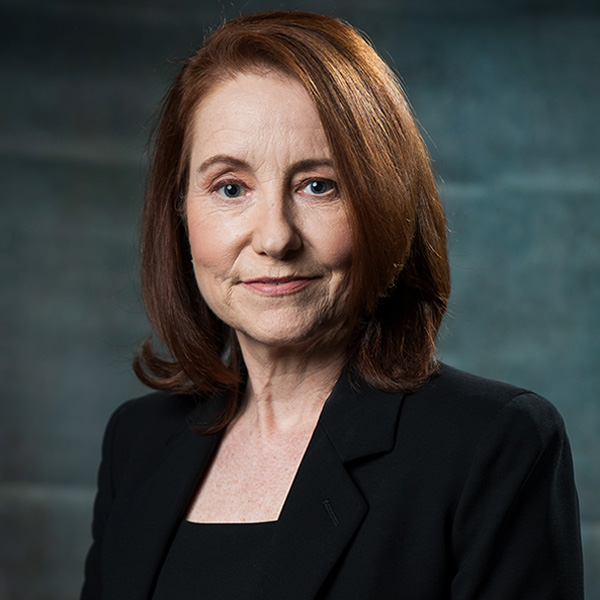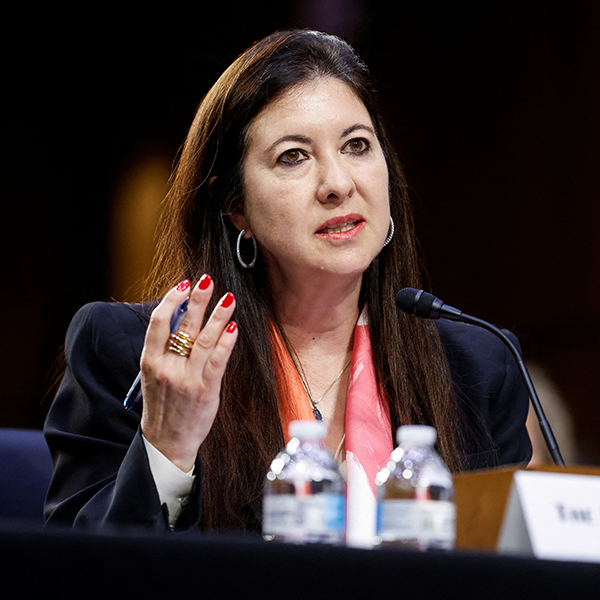When Ian Scott, BA’80, began his five-year term as chair of the Canadian Radio-Television and Telecommunications Commission (CRTC) in September, he brought a background of more than 24 years in dealing with telecom and broadcast issues. He also brought quite a change in leadership style to the high-profile regulatory body.
Whereas his predecessor (and fellow McGill alumnus), Jean-Pierre Blais, BCL’84, LLB’84, quickly established his credentials as a pro-consumer regulator, Scott emphasizes that he wants the CRTC to hew to its statutory role as an arbiter of the “public interest,” being neither pro-consumer nor pro-industry.
“Our job is to balance competing interests and to put out a decision that is in the public interest,” he says. “That’s the essence of our work. We hear applications, develop a record and render a decision.”
As the head of a quasi-judicial tribunal, Scott is careful not to comment on any matters that are before the commission. He is reluctant to use his chairmanship as a public podium as frequently or bluntly as Blais did, and declines to offer opinions on any of the CRTC’s past decisions.
In some cases, however, those decisions boomerang. In August, Heritage Minister Mélanie Joly asked the commission to reconsider the licensing terms of the large English-language broadcasters. The CRTC had set a uniform percentage of revenues that Rogers, Bell Media and Corus Entertainment must spend on programs of national interest – lowering each of the latter two broadcasters to the five per cent contributed by Rogers. Canadian content creators objected to the reduction, and lobbied Joly to seek a CRTC do-over.
In June, Innovation Minister Navdeep Bains asked the CRTC to reconsider an earlier decision which went against Sugar Mobile, a wireless startup in Toronto that offered cheap mobile service by relying largely on Wi-Fi. The CRTC has until March 31, 2018 to review its decision.
Scott is unfazed by the ministers’ interventions. “Cabinet is entitled to do so because it’s provided for in the Broadcasting Act and the Telecommunications Act,” he says. “I don’t have a view beyond that.”
Meanwhile, Bell Media is challenging the commission’s 2015 order eliminating simultaneous substitution, or “simsub,” of Canadian commercials during the NFL Superbowl telecast as of 2017. The decision means that Canadians can view American commercials on U.S. television stations carried by the country’s cable and other systems. (Canadians still see Canadian commercials during the Superbowl telecast on Canadian channels.)
Soon after Scott’s appointment was announced last July, Bell filed a new application with the CRTC seeking to have the simsub order overturned. Bell also has an appeal before the courts on the issue.
The Montreal-born Scott earned an honours BA in political science at McGill in 1980. “It was a great faculty,” he recalls. He took classes from constitutional scholar James Mallory, political philosopher Charles Taylor and regulatory expert Richard Schultz, who got him interested in “regulatory agencies and the politics of regulation.”
He started his career in the public sector, working at the Competition Bureau for five years, and then at the CRTC for five years. “While I was in the telecom directorate at the CRTC, I was part of the team that implemented long-distance and then local phone competition,” he says.
Scott then moved to the private sector, where he held executive positions in both government and regulatory matters at Call-Net Enterprises (a telecom company acquired by Rogers) and with the Canadian Cable Television Association. “I helped the cable industry begin their entry into the telecom sector,” he says.
He served as vice president of federal government relations for Telus and, most recently, as executive director of government and regulatory affairs at Telesat Canada, which provides satellite-delivered communication services to broadcast, telecom, corporate, and government customers.
He says he will recuse himself from any CRTC decisions regarding his previous employer for at least a year, but he adds that “Telesat is not extensively involved with the CRTC. It has been [exempt] from rate regulation for almost 20 years.”
Scott was one of three appointments to the top echelon of the commission that were announced in July. His two key colleagues are McGill alumnae Caroline Simard, DCL’09, vice-chair (broadcasting) and Christianne Laizner, BA’77, interim vice-chair (telecommunications).



